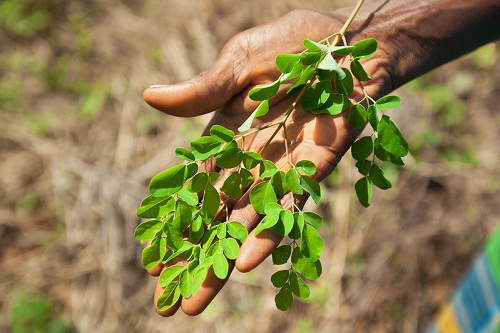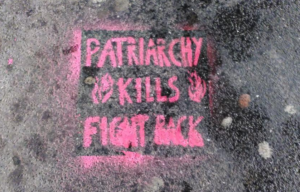In the context of COP27, which took place in Egypt in November, Fatma Khafagy provides an analytical overview of feminist struggles in the Arab region that are closely linked to climate issues.
(updated 20/11/2022)
The Arab region is experiencing the effects of climate change, including a rise in temperatures that is threatening life on Earth. This is seen in the increase in climate-induced crises, the scarcity of water resources, rising sea levels, river pollution, and other factors that affect both societies at large and women more specifically. Women suffer the risks and consequences of climate change, amidst ongoing armed conflict and wars in the Arab region, and the continued Israeli military occupation of the Occupied Palestinian Territories (OPT) since 1967. Arab governments were delayed in addressing climate change issues and their impact on marginalised and impoverished communities in this regions.
More difficulties in war zones and cross-border regions
In the Occupied Palestinian Territories, Israel controls 80% of the water from the West Bank’s aquifers. In Gaza, people are denied access to the arable agricultural land in the border “buffer zone” delineated by Israel, blocking 20% of the total fertile agricultural land. In the West Bank and East Jerusalem, poorly regulated air, soil, and water caused by Israeli settlements pose more environmental threats. In Palestine, 118 water and sanitation facilities were destroyed in the 2012–2013 period. Food insecurity currently affects one-third of Palestinians. Food insecurity currently affects one-third of Palestinians. This is expected to rise, as 85% of agriculture in Palestine is rainfed while rainfall is expected to decline by 30% in the Eastern Mediterranean.
Cross-border dependencies between countries in the region complicate responses to the climate crisis. Iraq’s dependence on Turkey and Iran for a steady water supply increases its vulnerability. Syria also relies on water from the Euphrates and Turkey. When Turkey built dams and restricted the flow of water to Syria during the war, the country experienced major shortages. Palestinians are dependent on water purchased from the occupying power, which puts them in vulnerable situations. In addition, the Levant, the Maghreb, and the Gulf states need to maintain stable political relations to protect potential shared transborder electricity grids.
“Feminisation of agricultural labour”
In the Arab region, most of the female workforce is in agriculture. In these countries, millions of women work on agricultural land that is not their own. This is despite the fact that women who work in the agricultural sector are the most qualified to conserve land and water resources, as well as the environment at large.
Women undertake many tasks in agriculture. They mostly work as unpaid family workers or as paid agricultural workers with minimal and seasonal income. It is estimated that women own only 5% of the agricultural land in the Arab region. In Egypt, despite having the oldest agricultural system, women own only 5% of land. In Tunisia, women own less than 14%. In Lebanon, they own 7.1%, and in Saudi Arabia women own 8%. The percentage of women in the agricultural labour force in the Arab region has risen sharply over recent decades, from about 30% in 1980 to 45% in 2010, which is faster than in any other region of the world. In some countries of the region, as a result of male migration and armed conflict, women make up more than 60% of the agricultural labour force, giving rise to what has been termed the “feminisation of agricultural labour”.
Like in many other regions, women in the Arab region are responsible for the production of 60–80% of food, and yet, they rarely own the agricultural land. They work with low tenure security, little decision-making power, and limited control over land use. Socially constructed gender roles, unequal access to land administration, and discriminatory practices further limit women’s access to and control over land. This is in addition to certain common, land-related patterns reflecting customary and religious laws and practices in the Arab world that shape the way women can access and control land.
The burden of (unpaid) care work
Moreover, women’s suffering increases as a result of unpaid care work within the domestic space, as they bear the burden of providing for the needs of all their family members and managing the limited resources available to them in ensuring their safety and health. These burdens are aggravated by climate change, as well as the failures of public policies and programmes to consider the needs of the most marginalised groups, including the needs of women and girls.
Future prospects
Women need to have control over economic resources such as land and water to ensure their security, their ability to take decisions, and to participate actively. They also need to have access to technologies and services that can alleviate their work burden.
With the close of COP27 and with COP28 being held in the Arab region, Arab feminists believe that women and girls have the right to effectively participate in and lead efforts to achieve climate justice, as equal rights holders and agents of change.
Unfortunately, there are much UN complications for civil society organisations associated with getting accreditation to participate or attend any COP. These include having to register one year in advance and also having to fill a very complicated application. As for COP27 in Sharm Al Sheikh, organisers did not facilitate NGOs attending COP27. Authorities concerned preferred to choose 28 Egyptian NGOs which not necessarily are active in climate change activities to participate in COP27. These are NGOs that are government friendly. Civic space in Egypt has to open up for all kinds of organisations, unions, and movements for any national or international events.
Most climate mitigation and adaptation measures disregard women’s role and the vital contributions of women. Neither the continued disregard for the role and agency of women nor the measures adopted so far are likely to deliver effective or durable solutions to the climate crisis. Women in the Arab region are not passive victims of climate change; they are already at the forefront of climate action as change catalysts whose diverse knowledge and skills are essential to transformative climate action.
Bibliography
Egypt’s first updated nationally determined contributions (8 June 2022)
Egypt National Strategy for Climate Change 2050. Prepared by Integral Consult
Khafagy, Fatma (2022), Impact of Climate Change on Women in Egypt
National Strategy for Mainstreaming Gender in Climate Change in Egypt (Jun 2022), EEAA, CIUCN, CEDARE



